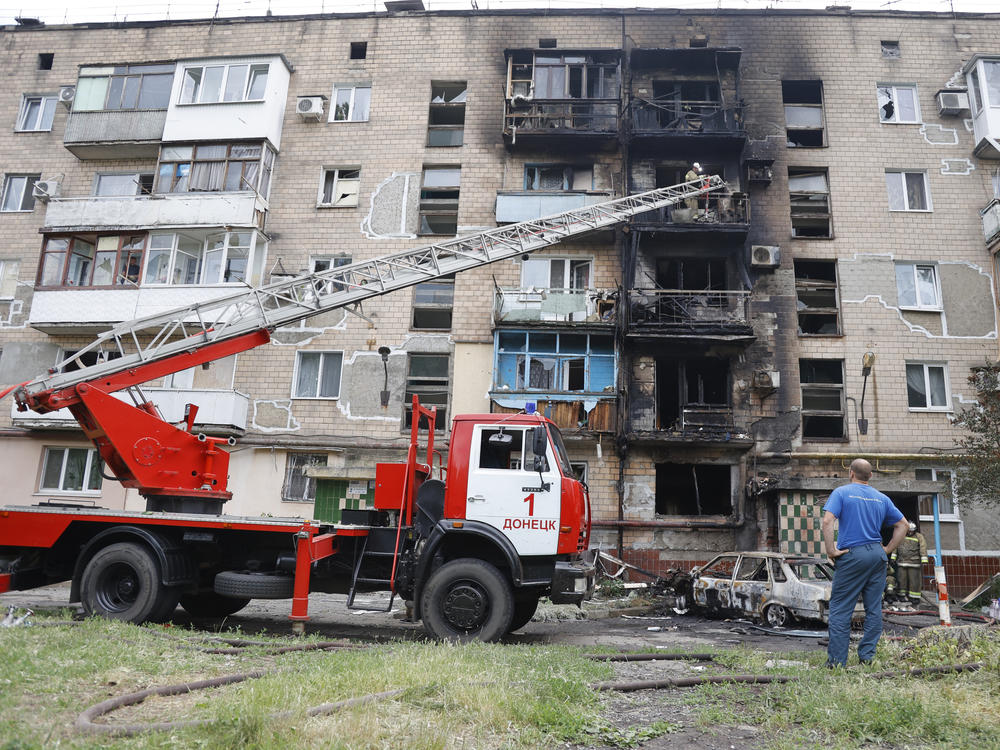Loading...
Section Branding
Header Content
Russia-Ukraine war: What happened today (June 13)
Primary Content
As Monday draws to a close in Kyiv and in Moscow, here are the key developments of the day:
Russian troops are pushing to fully encircle the key city of Sievierodonetsk in eastern Ukraine, and Ukrainian officials say the next few days could be critical. A victory there would give Russia control of every major city of the Luhansk region, part of Ukraine's industrial eastern area of Donbas. The regional governor said Russian troops have destroyed bridges spanning a river that the Ukrainian military relied on to bring troops, arms and supplies into Sievierodonetsk.
Early in its invasion, Russia's assault on Kharkiv, in northeastern Ukraine, killed hundreds of civilians with relentless, indiscriminate bombardments that constitute war crimes, Amnesty International said in a new report. The human rights group's researchers documented repeated shelling and the use of cluster munitions — banned by many countries — in several residential neighborhoods. The organization cited the regional medical director as saying 606 civilians had been killed and 1,248 injured in the Kharkiv region between Feb. 24 and April 28.
Ukrainian cybersecurity officials are tracking an attempted hack targeting local news outlets. Malware emails went out to 500 people in Ukraine, many at radio stations, websites and newspapers, the officials said. Ukraine's Computer Emergency Response Team warned Ukrainian media groups especially to avoid clicking messages advertising interactive maps, which could contain malware. The team said it's moderately confident the attack can be linked to Russian hacking group Sandworm, which experts have tied to major Russian cyberattacks in Ukraine for years.
Nicaragua raised eyebrows in Washington and concern in Central America by granting permission for Russia to send military forces, planes and ships to the country. The Nicaraguan government, which is friendly with the Kremlin, regularly authorizes the arrival of Russian military personnel and equipment, ostensibly for training, law enforcement and emergency response activities. But now, given Russia's invasion of Ukraine, "the idea that Russia can be a responsible partner in military or law enforcement training in the Western Hemisphere — or anywhere else — is ludicrous," a U.S. State Department official said. The president of Costa Rica, which borders Nicaragua, said his army-less country is "worried, for a good reason."
In-depth
Russia's rebranded McDonald's calls itself "Delicious, that's all."
A U.K. man got a death sentence for fighting for Ukraine. His family wants his release.
Special report
Russia's war in Ukraine is changing the world: See its ripple effects in all corners of the globe.
Earlier developments
You can read more daily recaps here. For context and more in-depth stories, you can find more of NPR's coverage here. Also, listen and subscribe to NPR's State of Ukraine podcast for updates throughout the day.
Copyright 2022 NPR. To see more, visit https://www.npr.org.

